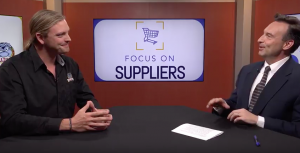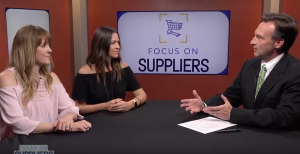Dr. Matt Waller of Orchestro talked with Andy Schuch on Saturday Morning Meeting for Suppliers on Saturday.
Waller says it’s time for suppliers to switch from their present vicious cycle with on-shelf availability and change instead to a virtuous cycle.
So what’s a vicious cycle? It’s an action loop in which one bad move leads to another, which leads to another, so that things get progressively worse. For example, if your products are out of stock on your Walmart shelf, you lose sales, and that means you show poor performance, and Walmart isn’t in a great hurry to restock your products.
Or shoppers look for your products but they’re not on the shelf, so the customer chooses a competitor’s product, and you get less shelf space, so when the shopper comes back, your products are less eye-catching, and she buys the competing product again.
Those are vicious cycles, and Waller says that’s what suppliers are usually seeing now.
A virtuous cycle is the opposite of a vicious cycle. The vicious cycle where a customer gets cross and a store associate responds with defensiveness, leading to a surlier customer, leading to a more outraged associate — that’s not good. The opposite is the virtuous cycle, where the store associate responds kindle and mollifies the customer, who backs down and allows the store associate to help, leading to a positive outcome.
So what’s the virtuous cycle that suppliers can use to replace the vicious cycle of problems with in-store execution?
Waller proposes a cycle with three steps:
- Pinpoint: Look at the entire supply chain, including the stores, the distribution centers, and the ship-from points. Watch for low supply days, zero scans, and other specific issues.
- Prioritize: Determine the most important issues to focus on. Waller says, “Prioritize based on your ability to affect it but also based on the revenue impact and the cost impact.”
- Prevent: Once you know the most important issues to deal with, you can create a strategy for each issue that will address the problem. Step in and make the needed changes to prevent the problems from happening again.
Taking these steps on a regular basis allows suppliers to change from the vicious cycle of out of stocks and other store-level execution problems to a virtuous cycle of identifying and dealing with problems before they lead to difficulties.
Pinpointing the issues may require more refined software, or stronger skills with Retail Link. Check out 8th & Walton’s full class schedule, or try out Orchestro’s software.
Join us at 6:30 Saturday evening on KNWA if you’re in Northwest Arkansas, or see full episodes of Saturday Morning Meeting on our website at any time. Enjoy the podcast below.



